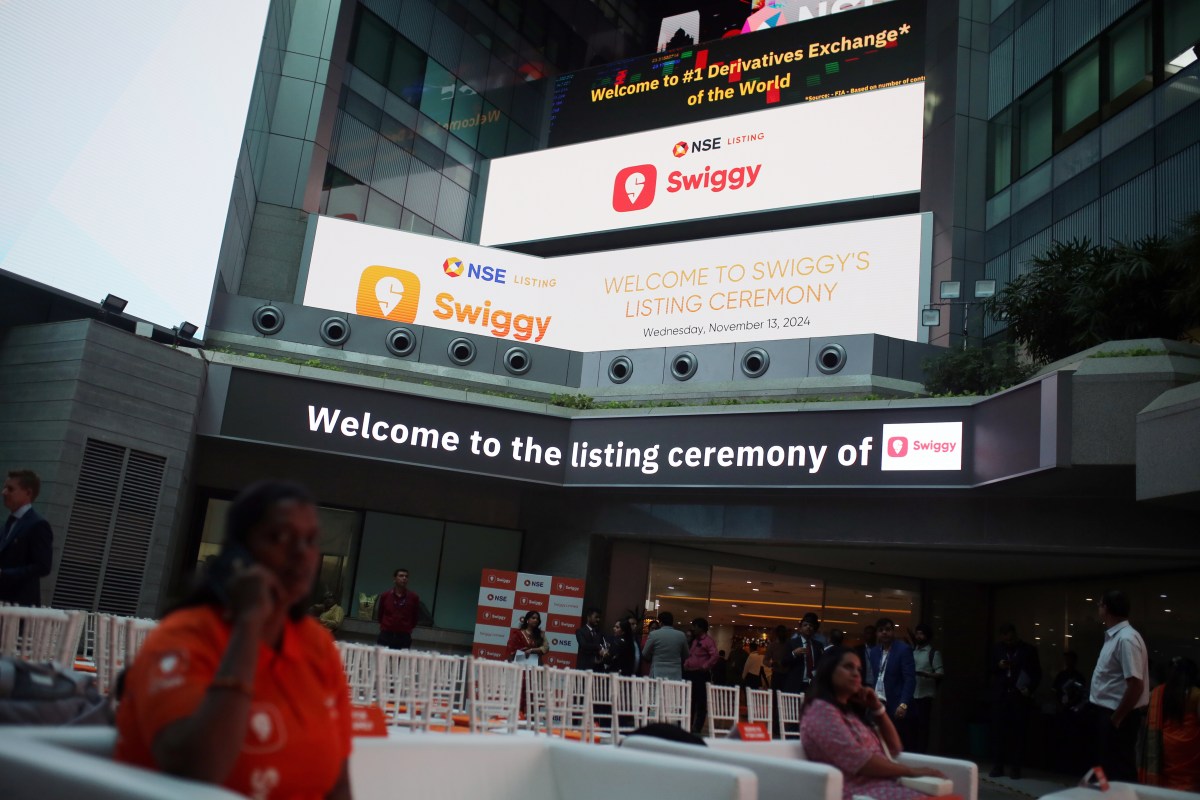Shares of Swiggy surged 7% to 440 rupees on Wednesday as the food delivery and quick commerce startup concluded India’s second-largest IPO this year, in a closely watched debut that puts it in direct comparison with what analysts have long considered the benchmark Indian internet stock: Zomato.
The listing of the 10-year-old Bengaluru-headquartered firm marks a milestone for India’s startup ecosystem, where several firms are eyeing similarly large public offerings in the next 24 months. It also delivers a major liquidity event for Swiggy’s backers, including Prosus, whose paper returns have already reached $2 billion, as well as SoftBank and Accel. Some 5,000 employees stand to collectively reap about $1 billion in wealth.
In the run-up to the IPO, Swiggy set its valuation at $11.3 billion, a notably conservative figure given rival Zomato’s recent $29 billion market capitalization. In an interview, Swiggy co-founder and chief executive Sriharsha Majety said the firm wanted to make the offering exciting for new investors. Shares of Zomato is also down 8% this month as foreign institutional investors continue to sell billions in Indian shares. Swiggy’s market cap jumped to $11.6 billion Wednesday.
“One of the things I am most excited about is that Swiggy itself is happening at an incredible time,” he said in a speech Wednesday. “When we look at the next one to two decades, I think it’s India’s next two decades. There’s so much economic growth in front of us. The Indian pride is at an all-time high.”
Swiggy enters public markets at a pivotal moment in India’s digital commerce landscape. While it has established itself as India’s second-largest food delivery platform with 14 million monthly active users, it trails market leader Zomato across key metrics. Its annualized gross order value of $3.3 billion in food delivery lags about 25% behind Zomato’s, according to Macquarie research.
The gap widens further in quick commerce – the rapid delivery segment promising grocery deliveries in 10 minutes. Swiggy’s Instamart service, operating through a network of over 550 dark stores, has 5.2 million monthly users compared to 7.6 million for Zomato’s Blinkit. More concerning for potential investors is that while Blinkit has reached adjusted EBITDA breakeven, Instamart remains loss-making even at the contribution margin level.
“We believe each of Swiggy’s business segments deserve to get lower target valuation multiple compared to that of Zomato’s due to poor execution in the past, which has led to widening of the market share gap,” JMFinancial analysts said Wednesday.
Yet the opportunity ahead is substantial. Morgan Stanley estimates India’s quick commerce market could reach $42 billion by 2030, representing over 18% of the country’s total ecommerce market. The sector has already grown at a blistering 77% annually since its pandemic-era inception, far outpacing traditional retail’s 14% growth.
JPMorgan reports that quick commerce platforms have already captured 56% of online grocery delivery from traditional e-commerce players.
However, competitive pressures are intensifying. Traditional retail giants like Flipkart and Reliance’s JioMart are launching their own rapid delivery services. Questions persist about the viability of the quick-commerce model beyond major urban centers, given its reliance on dense networks of small warehouses.

